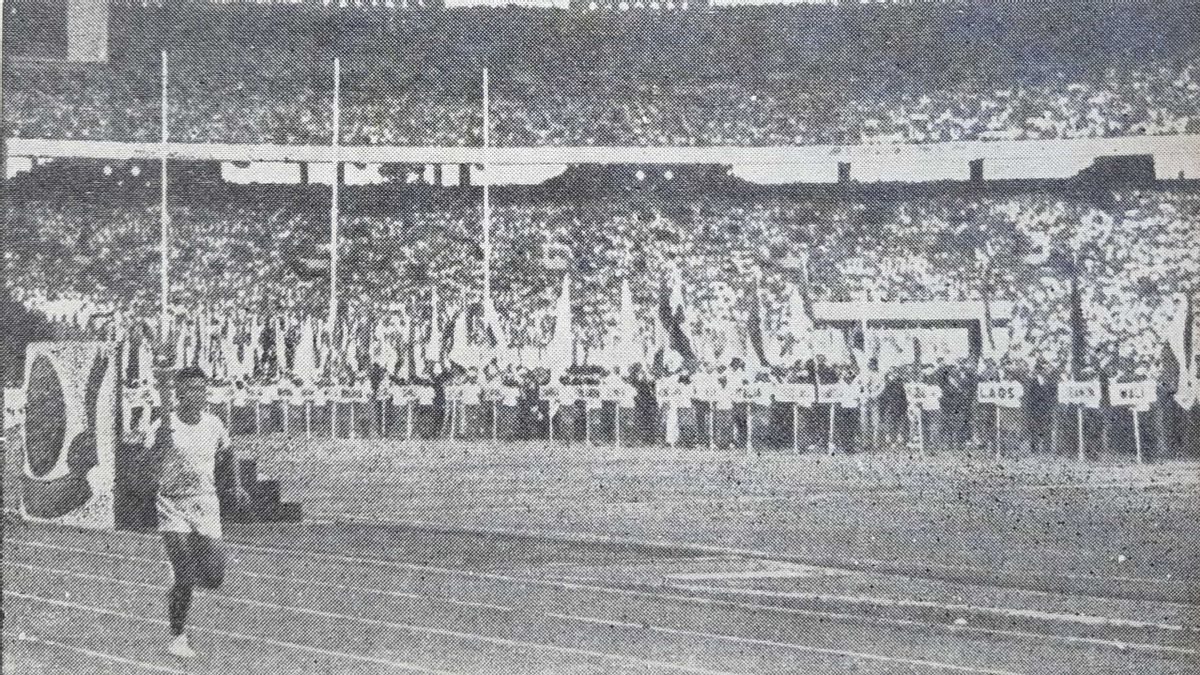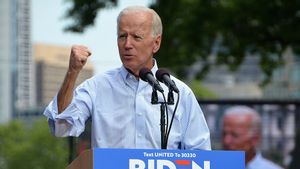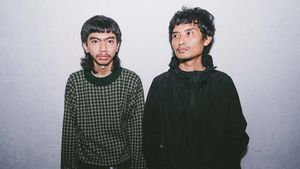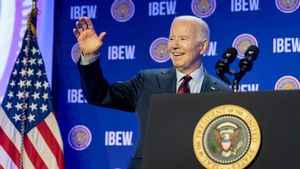
JAKARTA - In the era of President Soekarno's administration, Indonesia once opposed the world sporting event, the Olympics. Apart from being anti-western imperialism, Putra Sang Fajar was also angry with the behavior of the International Olympic Committee (IOC) for banning Indonesia from competing in the 1964 Tokyo Olympics. So what did Soekarno do? He created a rival sports event: Ganefo.
Even though Indonesia's economy is in dire straits, many people support the Ganefo event. Because the sporting event not only raised Indonesia's status in the eyes of the world, but also ignited the nationalism of the newly independent countries.
It all started with Soekarno's frustration with the IOC. He considered the Olympic committee two-faced. The IOC, which always proclaims that sports and politics are things that must be separated, has actually become a political tool of western imperialism.
For example, the IOC prohibited the presence of the People's Republic of China from participating in the Olympics. The ban was only because China embraced communism which was the enemy of the western bloc.
The IOC's actions at that time clearly made Soekarno angry. His frustration grew when the IOC banned Indonesia from participating in the 1964 Tokyo Olympics. The reason was partly because Indonesia refused the participation of Taiwan and Israel in the Asean Games IV in Indonesia.

China and all countries in the Arabian Peninsula admire Indonesia's courageous attitude. Meanwhile, the Asian Games Federation (AGF) and the IOC consider Indonesia to have committed a major violation for bringing political issues into sport.
“Indonesia has clearly expressed its resistance to the AGF and the IOC. Indonesia is of the opinion that sport is politics. According to the State Minister for Youth and Sports, Maladi (1962-1966), the essence of the events of the IV Asian Games is nothing but a confrontation between two conflicting principles," said Muhidin M. Dahlan in the book Ganefo: Olympic Left Indonesia (2019).
“First, the principle of sport cannot be separated from politics, which Indonesia has stated openly and openly to the world. Meanwhile, the second principle is that sports must be separated from politics, where Indonesia views this principle as just a cover used by the IOC to cover up the imperialists' intention to dominate and monopolize the world of international sports," he added.
The view that separates sports and politics is absurd and cannot be accepted by Sukarno. According to him, the IOC is like showing its ulcers in managing the world's sporting events. In which, the role of the government of the Olympic participants is only seen as a funder, facilitator, and athlete coach. Beyond that, everything must submit to the IOC.
There is no other way, Indonesia chose to leave the IOC. Sang Fajar's son immediately revealed his idea to create a rival sports party, Ganefo.
"They hope that we will become weak and beg to be allowed to re-enter. What nation do you think we are? We are not a tempeh nation. I ordered Minister Maladi to leave the IOC. Immediately form the Games of The New Emerging Forces. That is, a combination of Asian countries , Africa, Latin America, and socialist countries. The Ganefo that we will hold later is a sport from one's own family from one birth. I have ordered to make Ganefo immediately. This is not just an order from the President, but an order for all Indonesian people, "said Soekarno in his speech. at the Grand Conference of the National Front on February 13, 1963.

The organization of Ganefo was initially met with much opposition. Bung Karno was considered insensitive to the Indonesian people who were struggling to escape the shackles of poverty. Moreover, a series of lighthouse projects are considered mere waste.
"Even though the Indonesian economy is badly damaged, President Soekarno doesn't want to care. He built a palace in Bali, held the Ganefo sports party, planned the Conefo (Confence of New Emerging Forces), to destroy Malaysia. Indonesia's debt amounts to 2.4 billion dollars. The existing parliament is not against Soekarno, because the parliament was appointed by Sukarno (without a general election), and all the members are: yes man,” said student activist 66, Soe Hok Gie in the Transitional Period (2005).
However, after seeing Ganefo's goal, many people have turned around and sympathize with the organization of Ganefo. Inevitably, Ganefo received broad support not only from the Indonesian people. But also third world countries. In terms of providing funds, Indonesia did not spend much to prepare Ganefo.
All thanks to the assistance of Ganefo participating countries. China, for example, has donated 18 million dollars for the transportation of all delegates. While the sports complex has been available and has been funded by the Soviets since the IV Asian Games. This advantage makes the organization of Ganefo not get into significant problems.
"I hereby open Ganefo I," was the message from Bung Karno opening Ganefo in three languages: Indonesian, English and French which was held from 10-22 November 1963. The ceremonial event was so luxurious that it was witnessed by 100 thousand people at the Gelora Bung Stadium. Karno.
The crowd is a form of appreciation that Indonesia can hold a sporting event equivalent to the Olympics. It was noted that Ganefo I was attended by 51 countries with a total of 2700 athletes from Asia, Europe, Latin America, and Africa.
Labeling is growing. The Olympics are referred to the world as the Olympics of the right. Meanwhile, Ganefo is referred to as the Olympic left. Although short-lived because only until Ganefo III (and even then it has not been implemented), the name Ganefo remains the pride of the Indonesian people, at least to this day. The name Ganefo was later immortalized as the name of the eternal fire monument in Mrapen, Grobogan, Central Java.
“The most lavish activities were the implementation of the 1962 Asian Games and the 1963 Ganefo. These activities provided a new forum for Soekarno to make a speech, in the very large Senayan stadium, where he could play with the emotions of 100 thousand people. The people's outburst of emotion was first directed at hatred against the Dutch, then at the British and Malaysian Governments, which was followed by the burning of the British Embassy in 1963,” wrote Susan Blackburn in Jakarta: 400 Years of History (2011).
*Read other information about the history of the world or read other interesting articles from Detha Arya Tifada.
Other MEMORIESThe English, Chinese, Japanese, Arabic, and French versions are automatically generated by the AI. So there may still be inaccuracies in translating, please always see Indonesian as our main language. (system supported by DigitalSiber.id)








